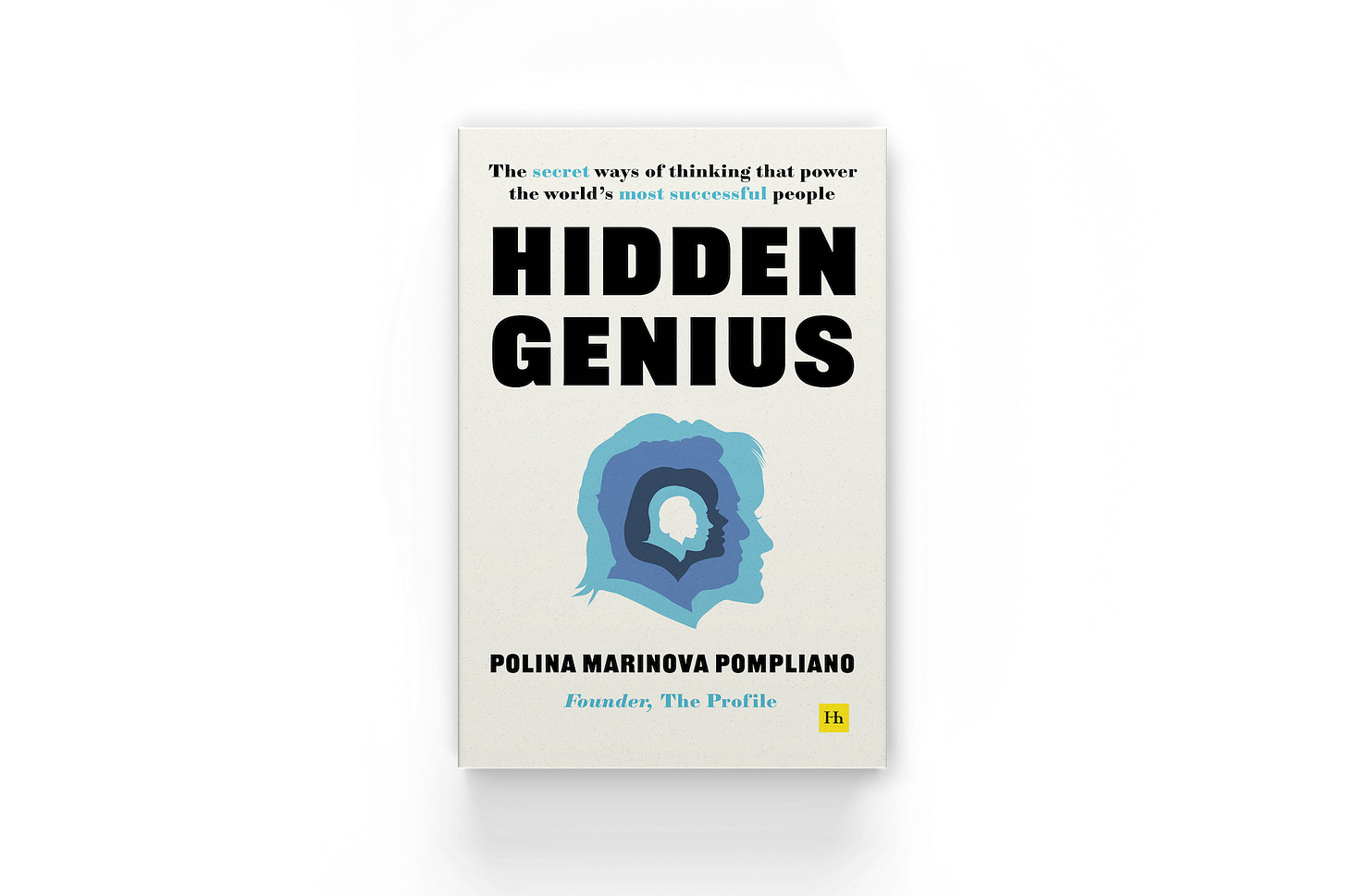The Profile: The Nike founder’s next act & the fentanyl victims suing Snapchat
The Profile: The Nike founder’s next act & the fentanyl victims suing SnapchatThis edition of The Profile features Phil Knight, Nicole Kidman, and more.
Good morning, friends! I had a glitch when I was sending this edition of The Profile on Sunday, so I just realized that a large portion of the subscribers didn’t receive it. My sincere apologies for the delay. — Four years ago, I did an interview with Every about why I love profiles, how I learned to read people, and why I continue to pay attention to the little things in life. I did another interview for the same series recently, and it was kind of amazing to see the difference. In the last four years, I’ve gotten married, had two kids, and written a book. But there has been one constant in my life — writing this newsletter week after week. (Like I said, I really love profiles.) Anyway, I wanted to share an excerpt about AI, which seems to be on everyone’s mind recently. From the Every article, titled, “Why This Entrepreneurial Journalist Doesn’t Fear AI:“ Has artificial intelligence changed how you’ve personally kept organized? If not, is there anything you think people misunderstand about AI and work?Not yet, but I’m sure it’s coming. I largely use AI if I want to rewrite something or I want it to edit my work. Have any of your interviews changed the way you think about AI or what’s on the horizon with emerging technology?I think it’s really exciting technology, and I’m not afraid of the future. There are so many applications across industries, and I think it will definitely reshape our digital life first and then our day-to-day life soon. I don’t think it’ll ever replace original work. In fact, my bet is that there will be an immense premium placed upon human-made, original work, much more than there is today. As a journalist, how do you feel about the rise of AI as a tool for writing? Is it something that you’ve embraced, repelled, or kept at an arm’s length?I love it as a tool. As a solo writer and founder, it’s nice to have an AI editor that can help me with sentence structure and readability. But here’s the thing: Every time someone publishes a story titled, “ChatGPT wrote this article,” I’m not very impressed. It has perfect grammar, perfect sentence structure, and perfect flow—and that’s the problem. I’ve been trying to find the right words to explain why I don’t think it’ll ever replace the (good) writers, and I found the answer in Rick Rubin’s book, The Creative Act. Here’s a short excerpt: “Flaws are human, and the attraction of art is the humanity held in it. If we were machine-like, the art wouldn’t resonate. It would be soulless. With life comes pain, insecurity, and fear. We’re all different and we’re all imperfect, and the imperfections are what makes each of us and our work interesting.” Whether we realize it or not, we relate to each other’s imperfections. We like imperfect people, imperfect art, and imperfect writing. Do I think ChatGPT could be used to supplement your writing? Sure. Will it displace all writers? Absolutely not. The beauty in any sort of creative endeavor is found in its messiness, in its flaws, and most of all, in its humanity. — BUILT FROM SCRATCH: Last week, I published my interview with Eight Sleep co-founder Alex Zatarain. In the Q&A, she discusses the process of discovering your brand identity, making decisions in times of uncertainty, and navigating the dynamics of starting a business with a significant other. Check it out below:
— PROFILES.— The Nike founder’s next act PEOPLE TO KNOW.The Nike founder’s next act: Phil Knight, the 86-year-old Nike co-founder, is using his cash to make Oregon University a football powerhouse. Since he stepped down as Nike’s chairman in 2016, he’s shown greater interest in athletics at the school where he ran track and graduated more than 60 years ago. And in the past few years, Knight has made his most audacious move yet: writing checks to help secure the first national championship for the Ducks football team. (Bloomberg; alternate link) “They have the money, the Nike swag, a great coach, and they’re undefeated.” The fentanyl victims suing Snapchat: Sixty four families are pursuing a lawsuit against Snap Inc, alleging that the company’s Snapchat app helped fuel an epidemic of teen overdoses. At 13, Michael Brewer, the suit’s star witness, connected with a dealer he met on Snapchat and bought a pill that, unbeknownst to him, was laced with fentanyl. He took it, blacked out and stopped breathing. Now 17, Michael is a star witness because he’s one of only two teens in the case who can describe what happened firsthand. All the other kids are dead. (Bloomberg; alternate link) “We see an average of about half a million unique users exposed to drug-related content every day.” The actress who’s not afraid to take career risks: Nicole Kidman, 57, has taken on a range of projects this year—from a Taylor Sheridan streaming thriller about the CIA to Netflix’s adaptation of an Elin Hilderbrand beach read—that add up to total cultural domination. Acting across genres and formats, high and low, she’s become a model for an exceptional and highly lucrative definition of actorly range. Here’s how Kidman achieved career longevity in an ever-changing industry. (WSJ; alternate link) “She is always looking for the most intense choice.” COMPANIES TO WATCH.The messaging app that ate the world: WhatsApp’s parent company, Meta, has been increasingly eager to tell the story of how businesses of all sizes are using its messaging app to grow. WhatsApp is the world’s most widely used messaging app with 2 billion daily users. These users send more than 100 billion messages every day in 60 languages across 180 countries. Some 400 million of those users are in India, WhatsApp’s biggest market, followed by another 120 million in Brazil. Here’s how Meta wants to turn WhatsApp into ‘the everything app.” (Rest of World) “We were trying to hit every user, everywhere, on every platform.” The German bus startup that bought Greyhound: If you search Greyhound on Tripadvisor, the adjectives you’re most likely to see in the mass of 1-star reviews are “miserable,” “worst,” and “stranded.” Despite this reputation, 12 million passengers rode Greyhound buses last year. And then in 2021, one of its new rivals, an express bus startup called Flix, bought the company for just $172 million, which is down almost 80% from a $800 million valuation a decade earlier. Can Flix make Greyhound cool again? (Forbes; alternate link) “It was an odd marriage of a traditional bus company that goes everywhere with a lean, aggressive, tech savvy startup.” ✨ The rest of this newsletter is only available for premium members of The Profile, whose support makes this work possible. If you’re not already a premium member, consider upgrading your subscription below for access to an additional section of weekly audio + video recommendations. ✨ MULTIMEDIA.— Taffy Brodesser-Akner’s endless curiosity AUDIO TO HEAR.Taffy Brodesser-Akner’s endless curiosity: Taffy is one of my favorite profile writers. She’s done features on Gwyneth Paltrow, Bradley Cooper, and Tom Hanks. One time, she even managed to expertly pull off a profile on Nicki MInaj even though Minaj fell asleep at the beginning of the interview. In this Longform episode, Taffy discusses her reporting process, how she assesses the essence of a person in a short period of time, and why forming authentic relationships is key. Julia Galef on how to change your mind: We’re so focused on changing other people’s minds to be congruent with our beliefs that we forget the most important person whose mind we can change is ourselves. In this podcast, Julia Galef, the co-founder of the Center for Applied Rationality, explains how we can become more open-minded by actively seeking out new evidence that may contradict our existing beliefs. (Read Julia Galef’s Profile Dossier here.) VIDEOS TO SEE.Jessica Livingston on how to build the future: Jessica Livingston, co-founder of Y Combinator, has funded 1,500 startups and they were worth more than $70 billion in total back in 2016. In this conversation, Livingston discusses the traits of the most successful founders and what it takes to build a once-in-a-generation business. Leena Nair on a career of “firsts:’ Leena Nair, the CEO of Chanel, shares her journey of “firsts” from growing up in a small town in India to becoming the first woman of color CEO of a major luxury brand. She shares insights drawn from her extensive leadership experience in human resources and now as the CEO of the iconic French fashion house. Leena candidly discusses the challenges she faced breaking barriers, paving the way for future female leaders, and the invaluable lessons she’s learned about leadership and resilience along the way. 👉 The Profile is the perfect gift for any occasion! Give a gift subscription to a loved one through the link below:✨ Order my book, HIDDEN GENIUS below:
Invite your friends and earn rewardsIf you enjoy The Profile, share it with your friends and earn rewards when they subscribe.
© 2025 The Profile |


